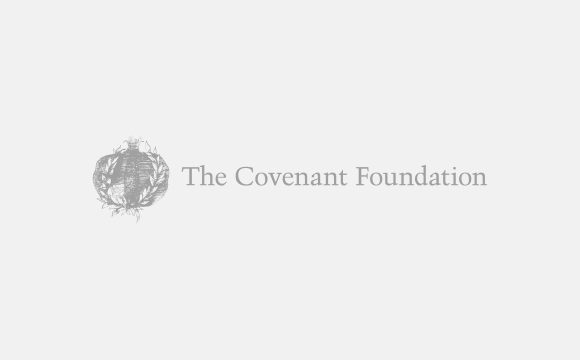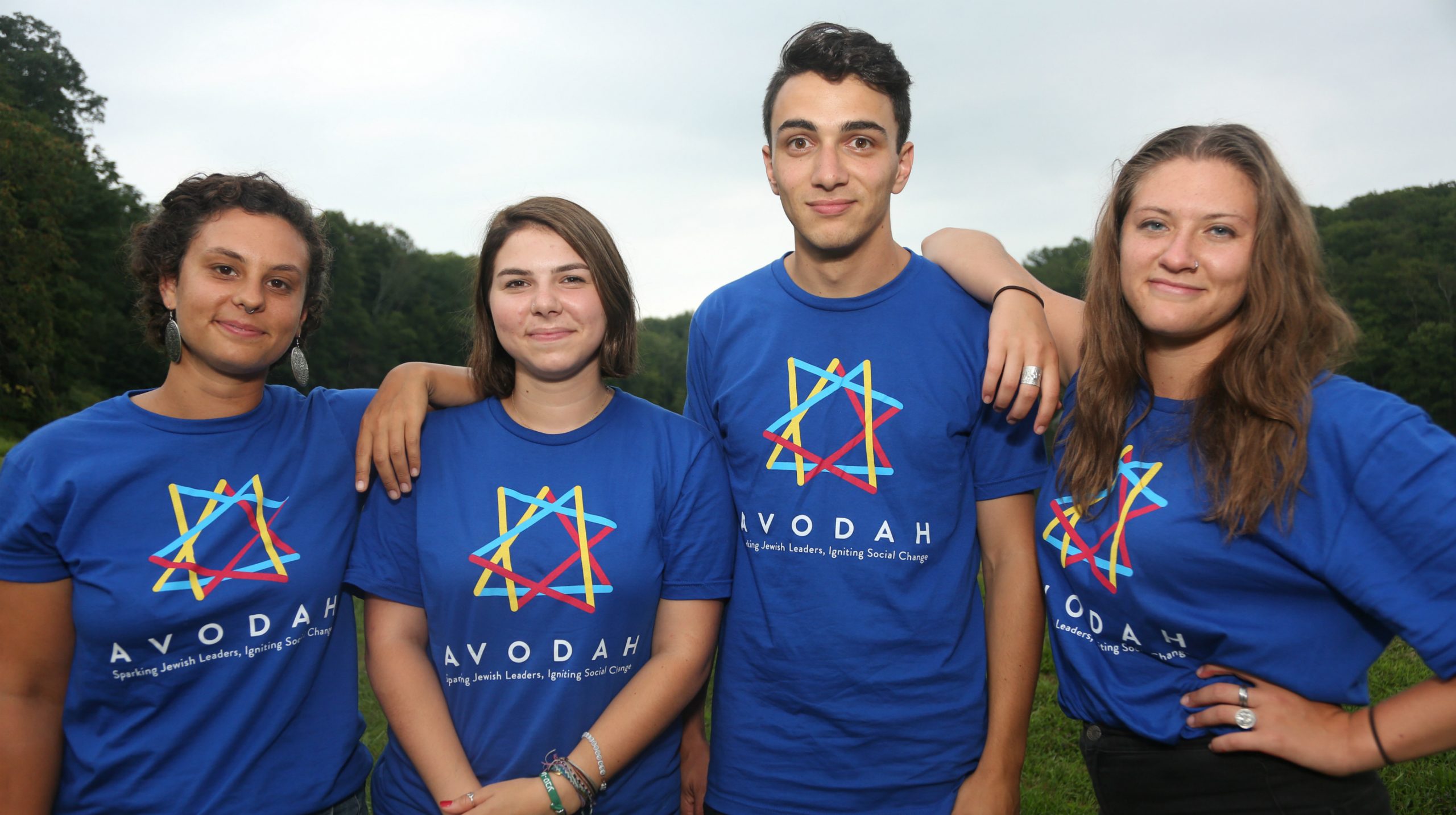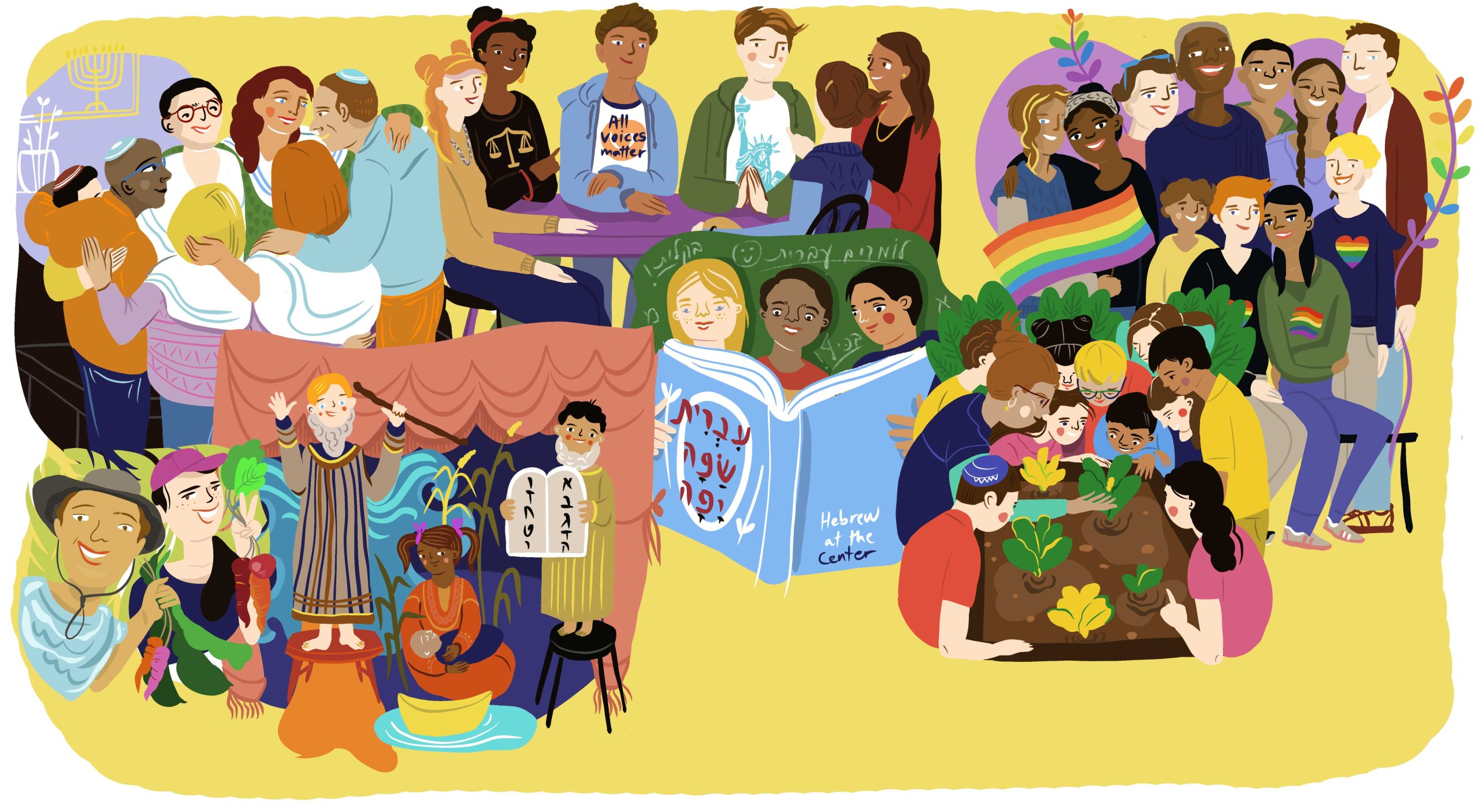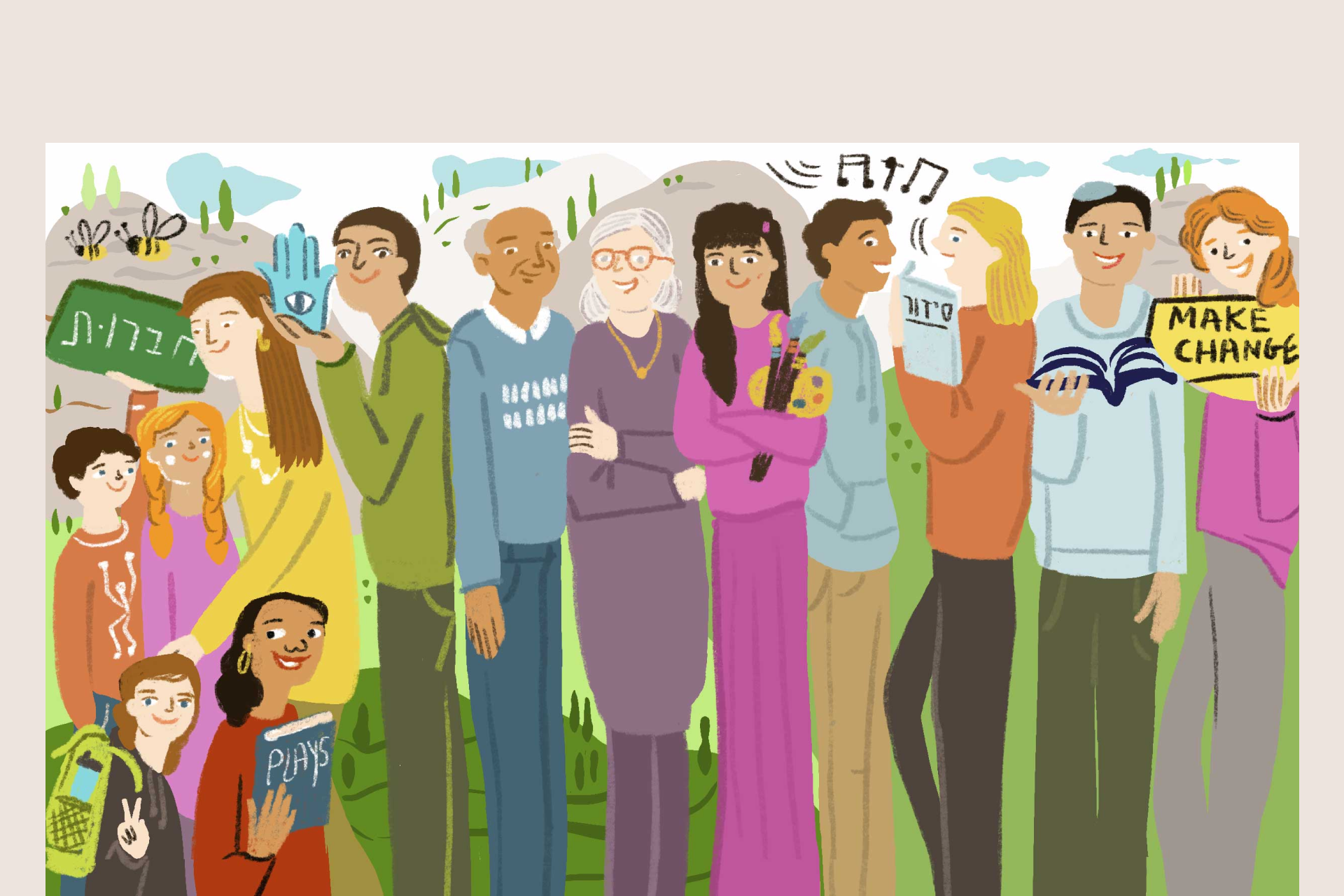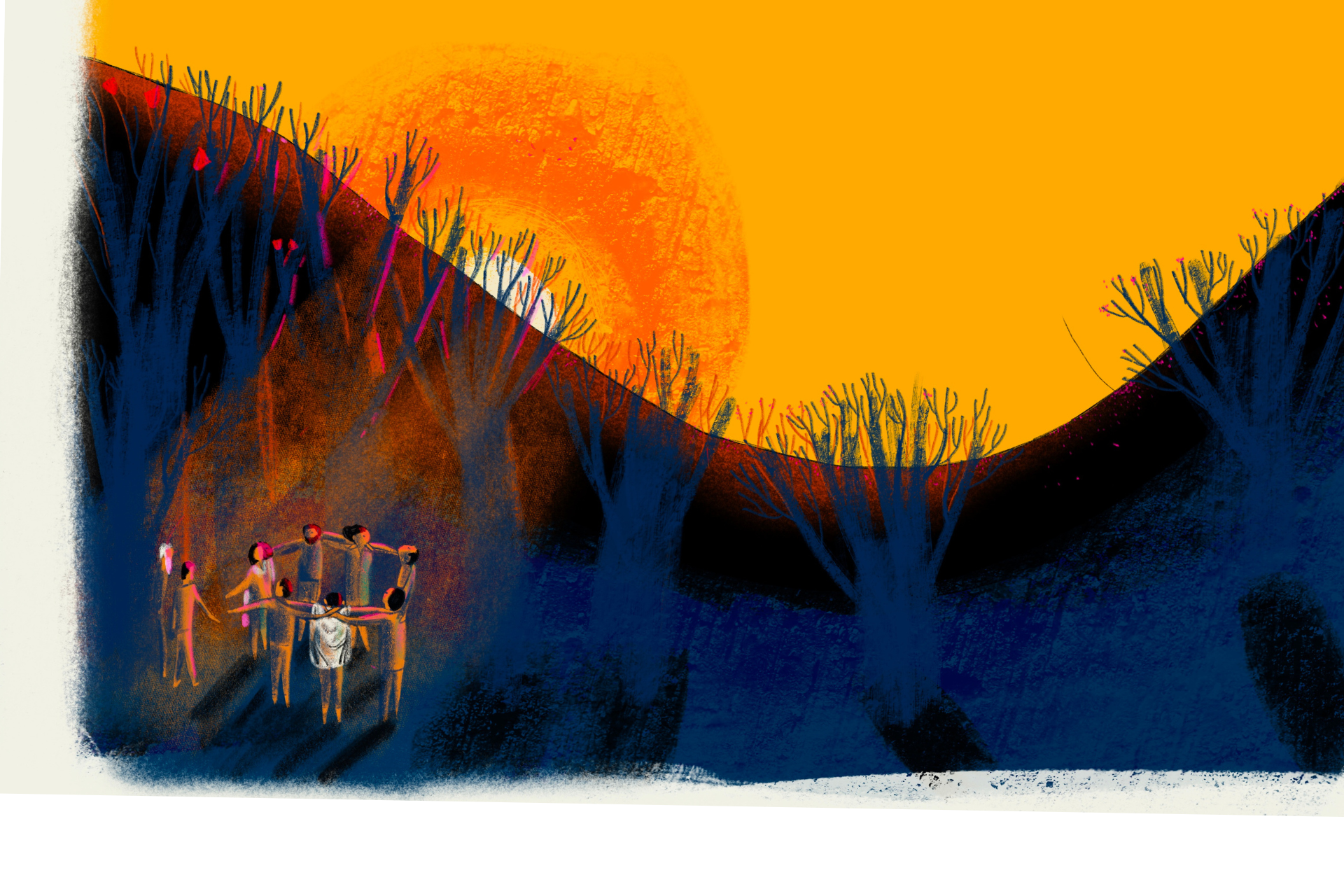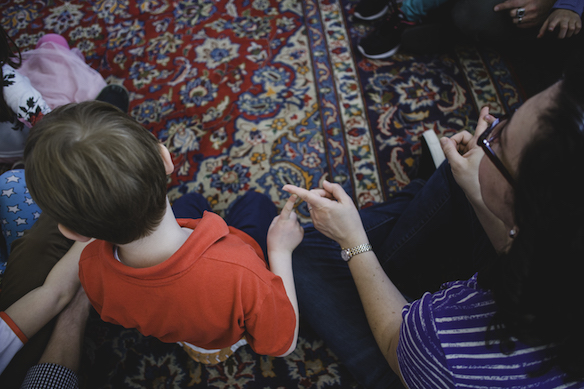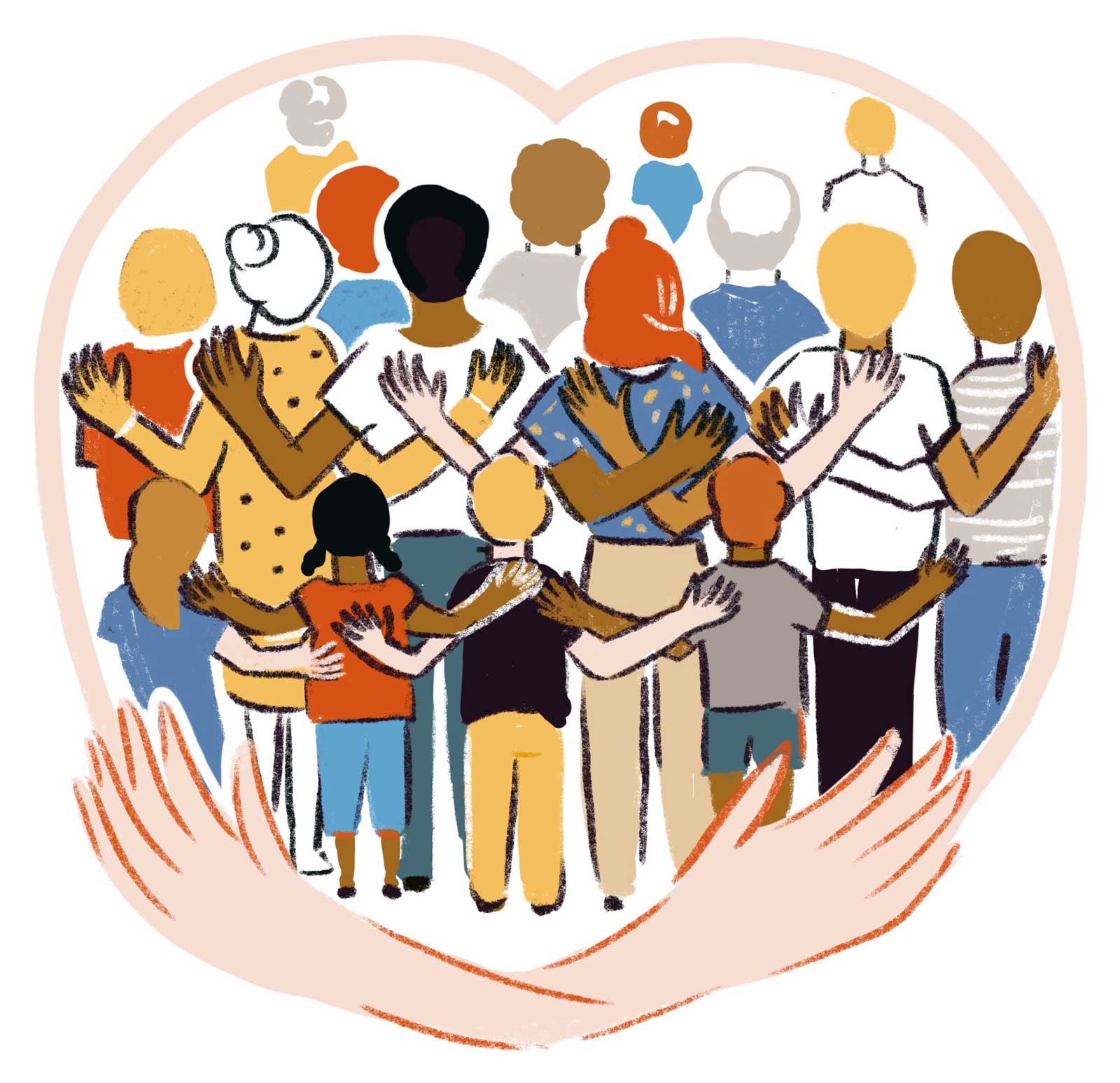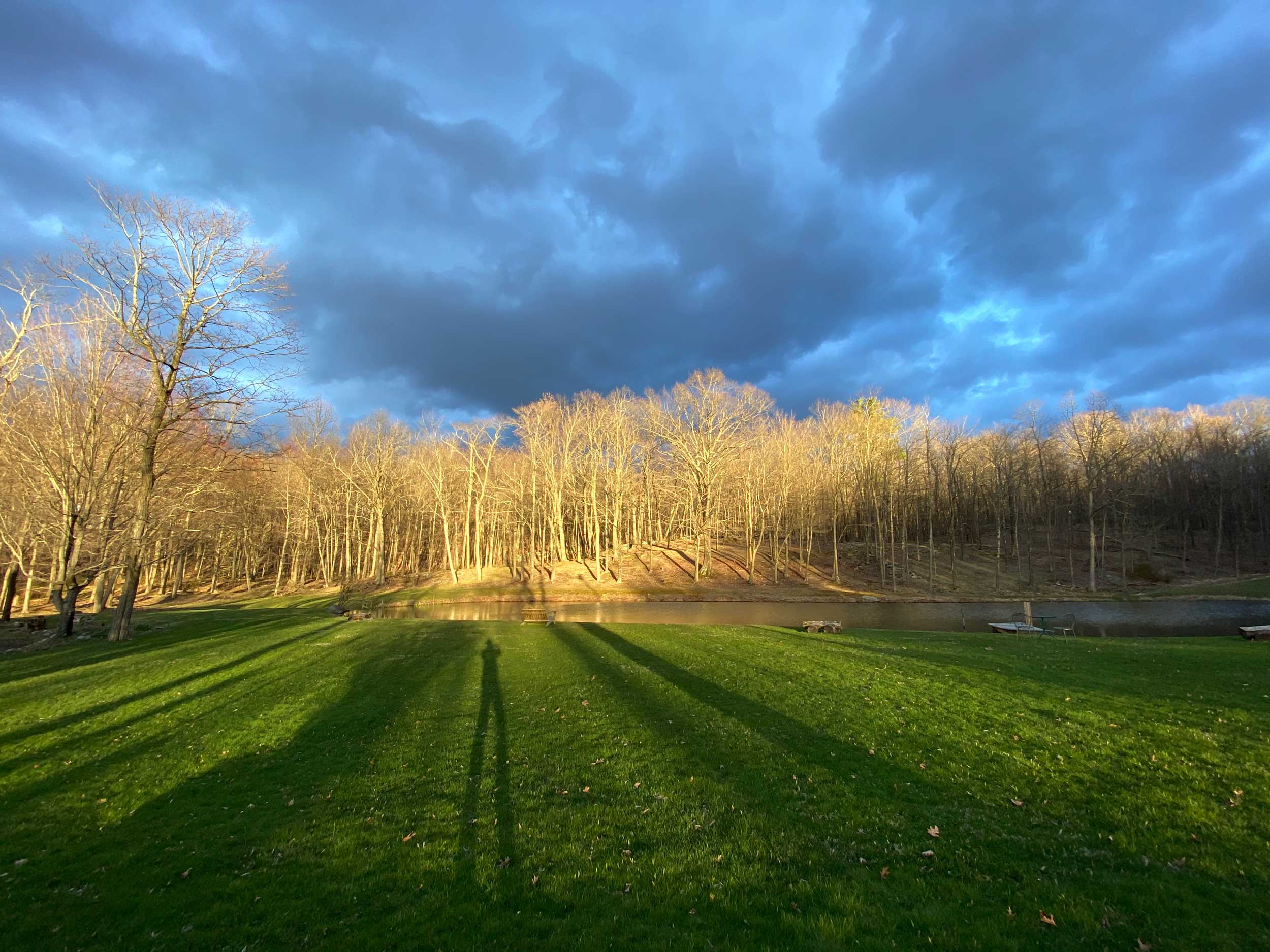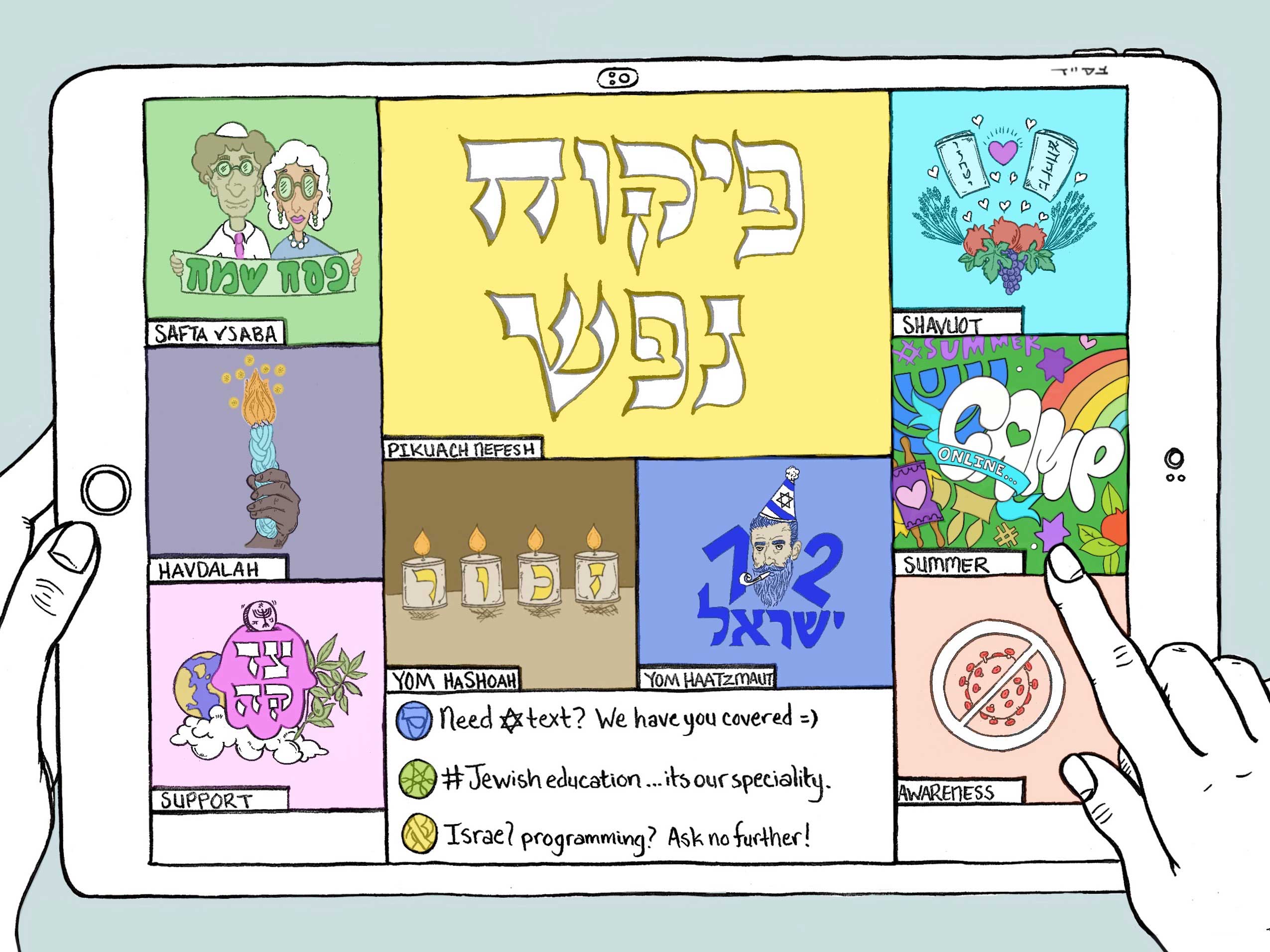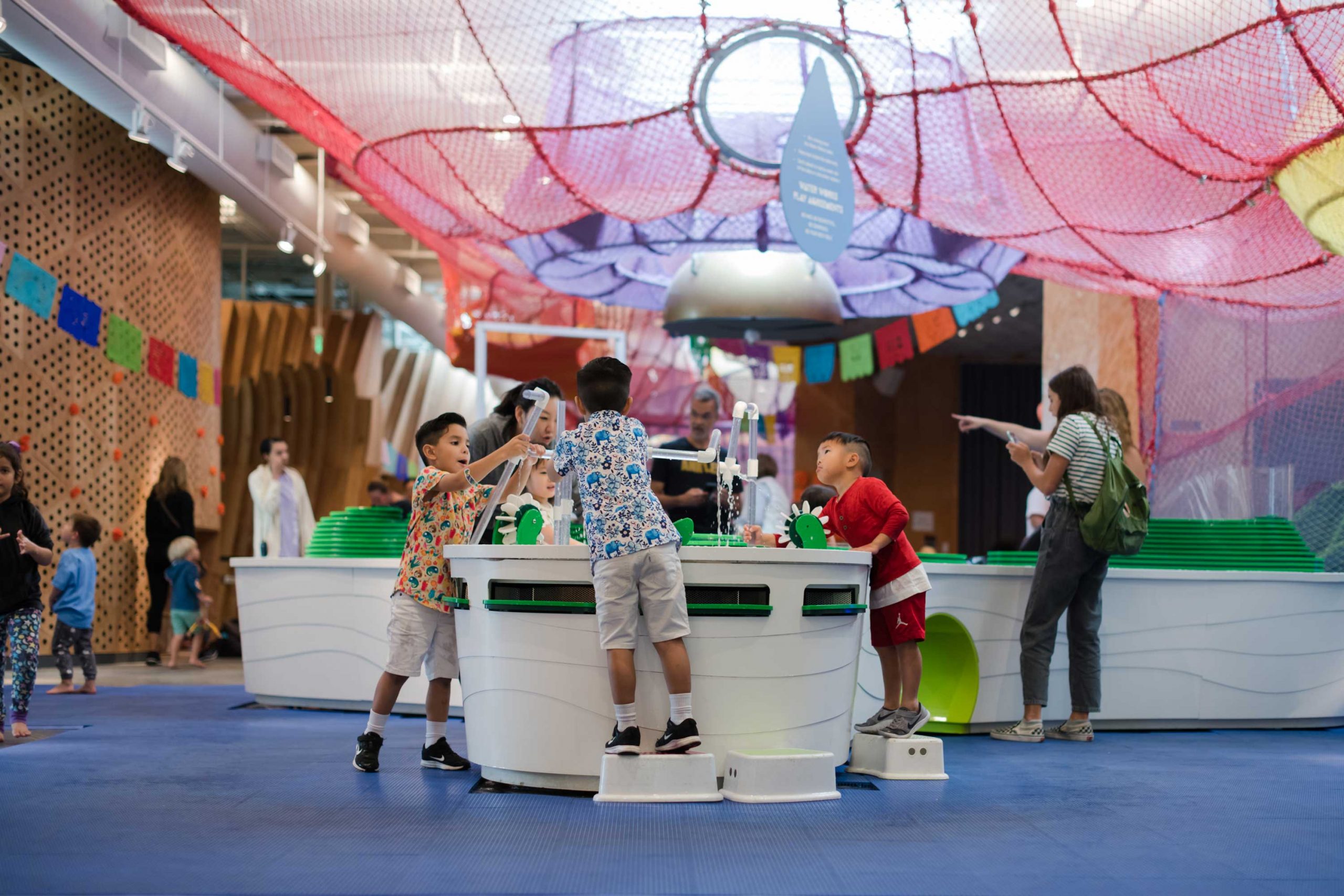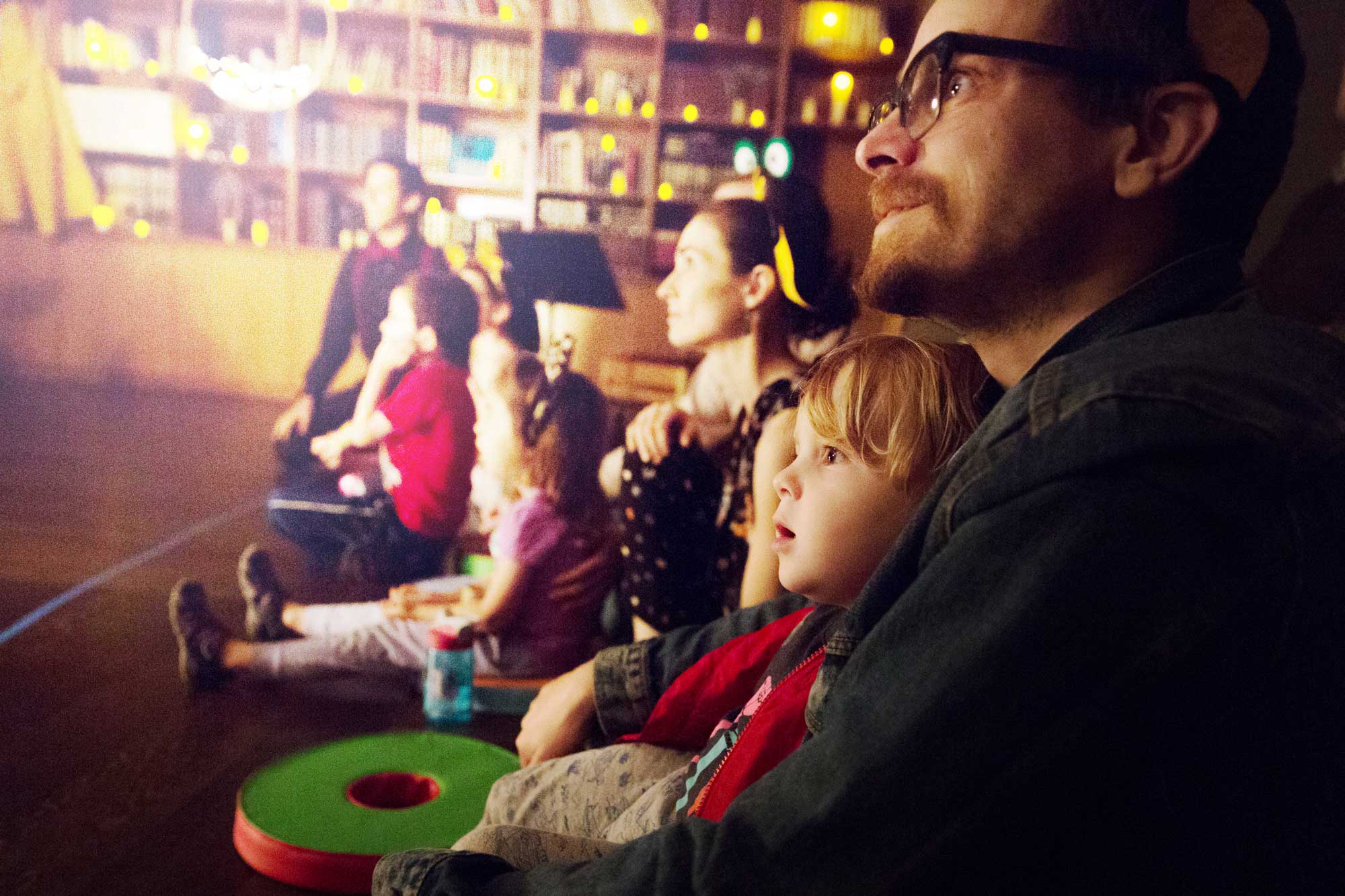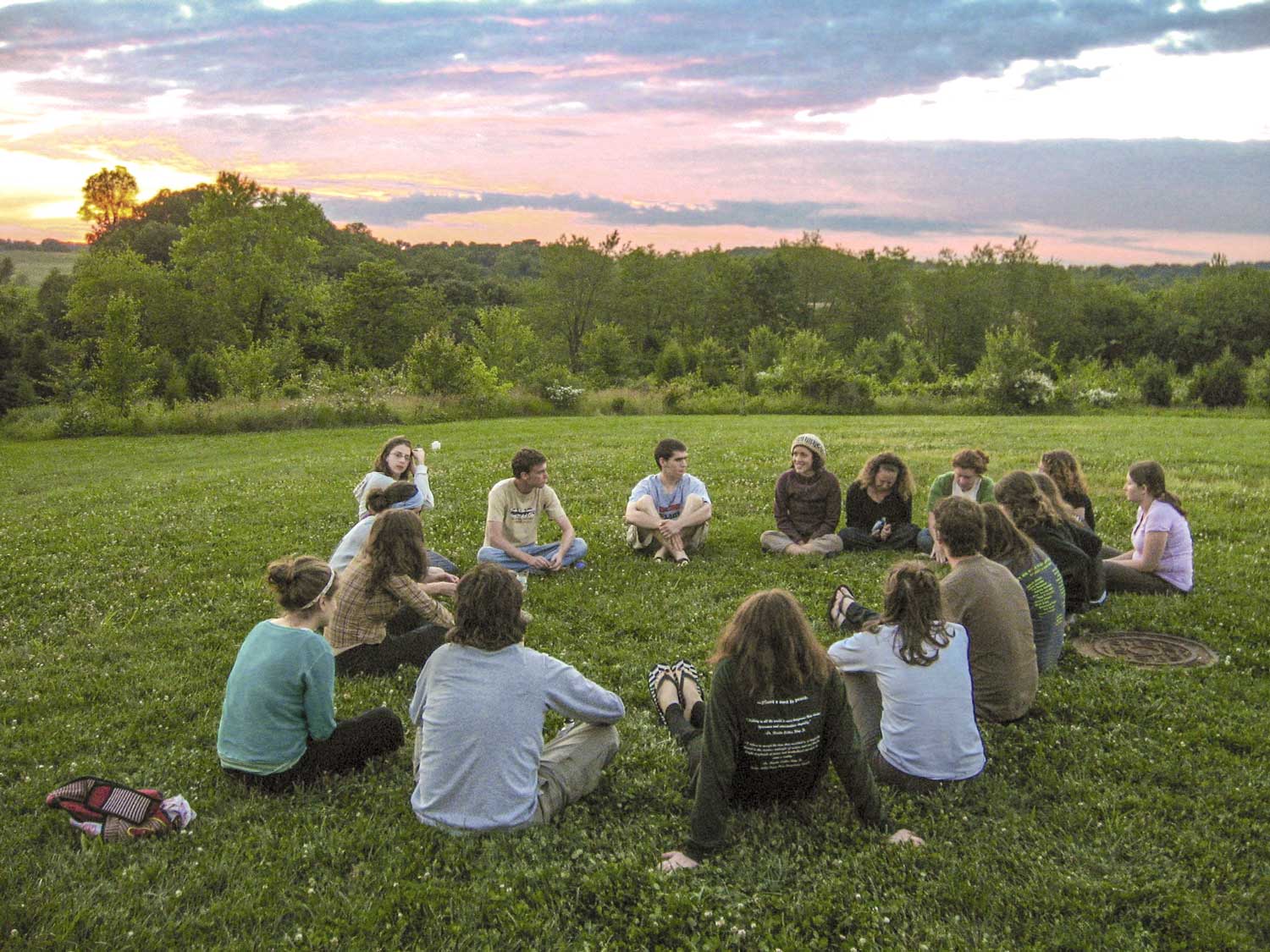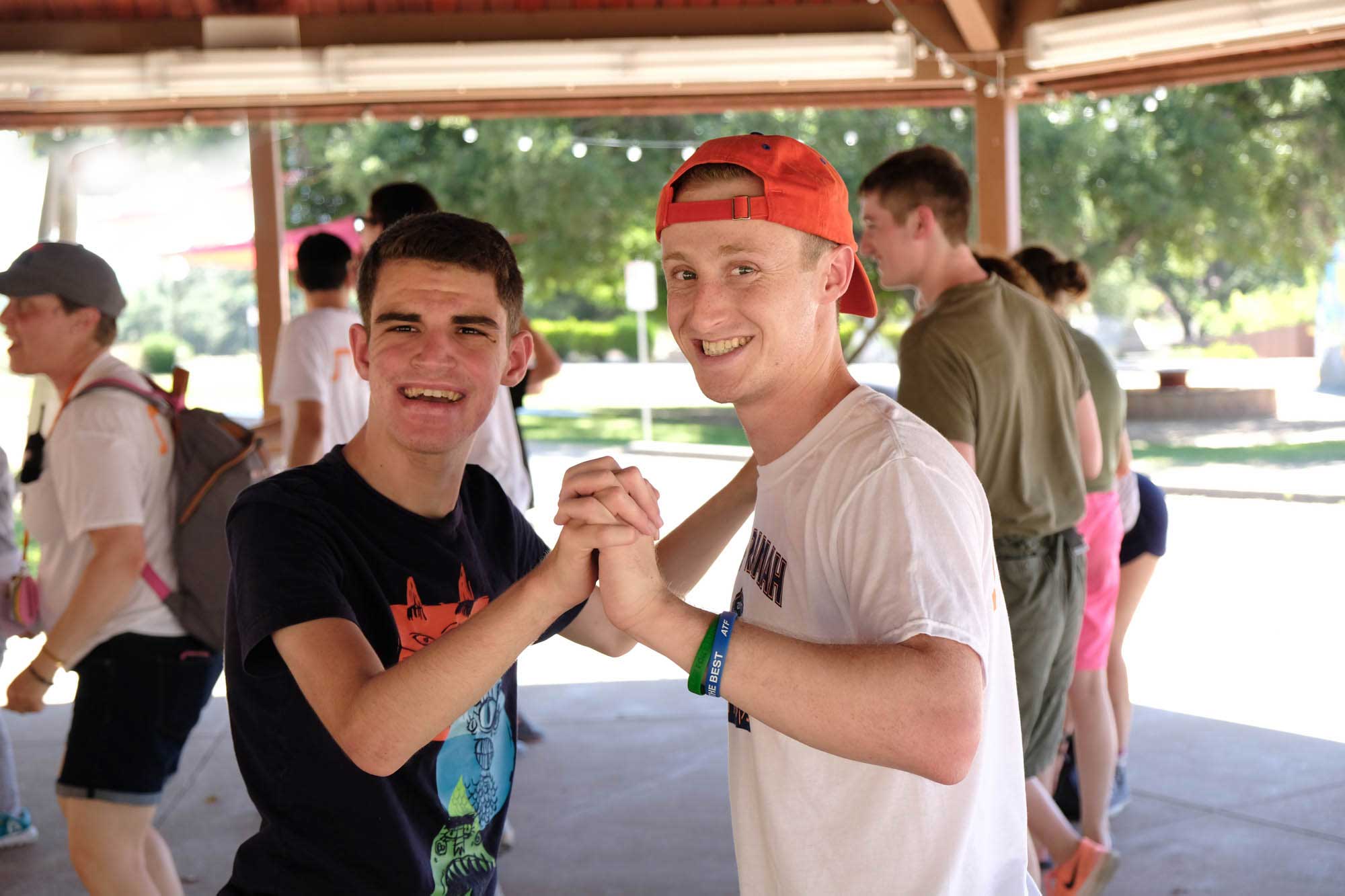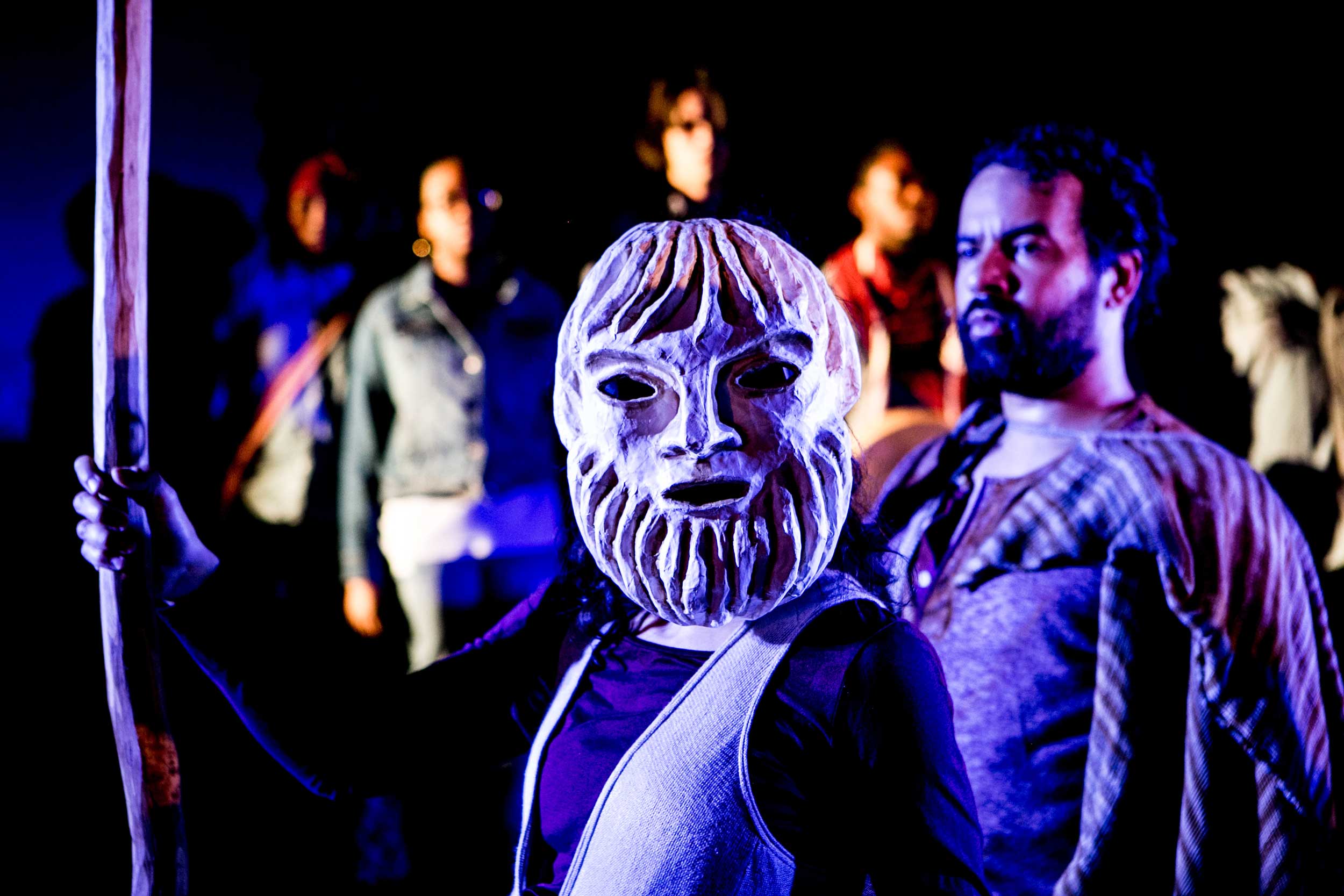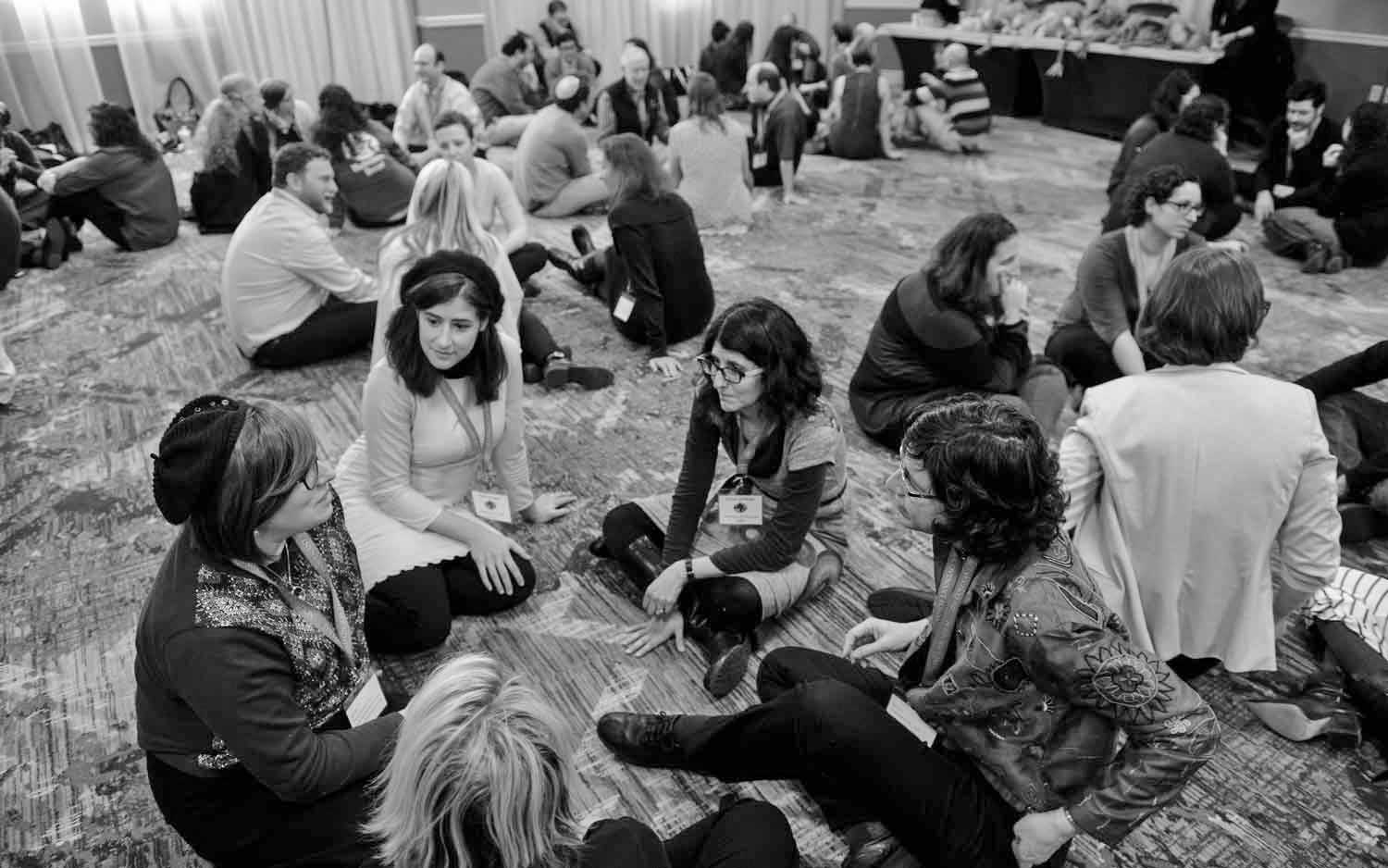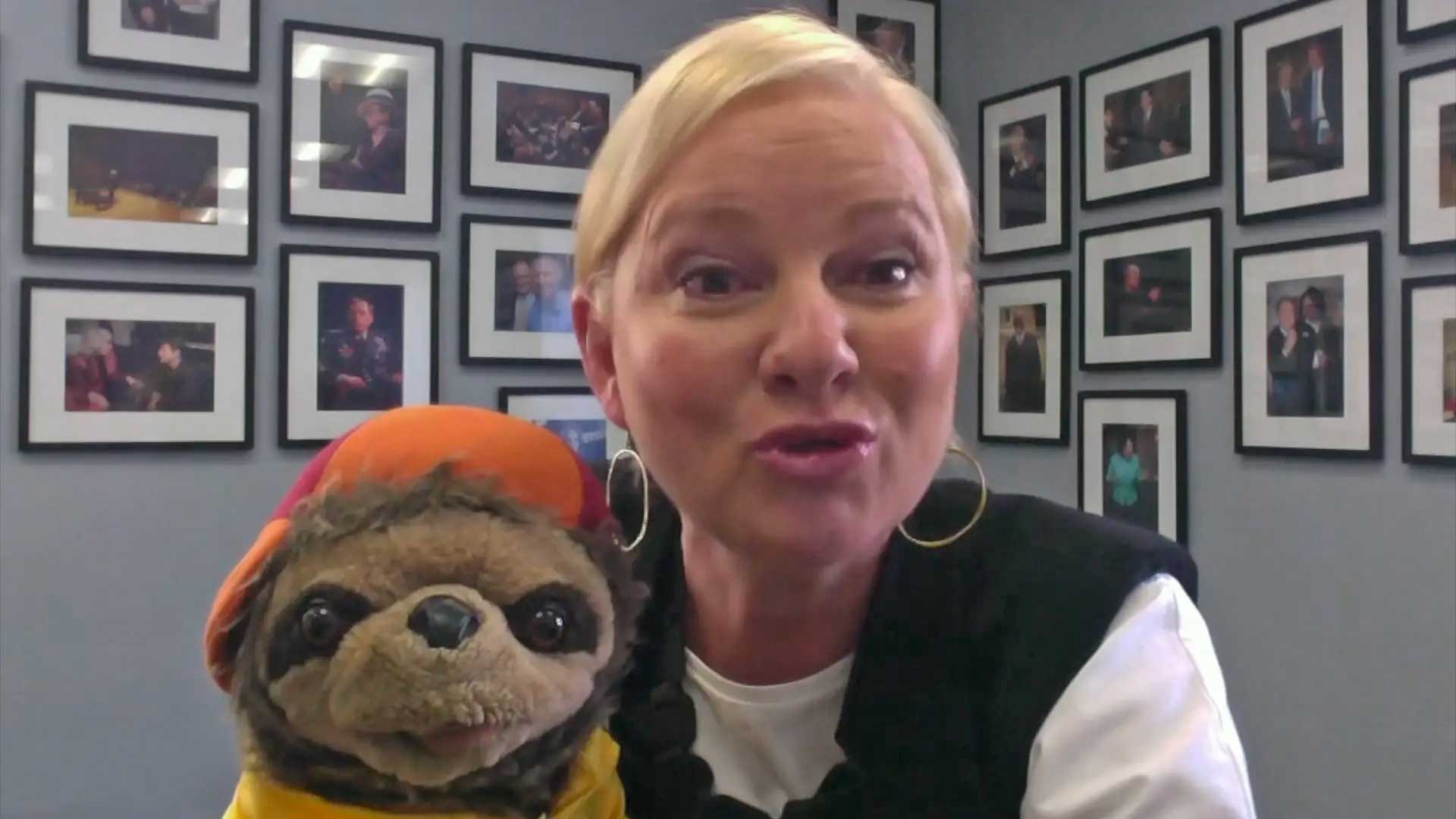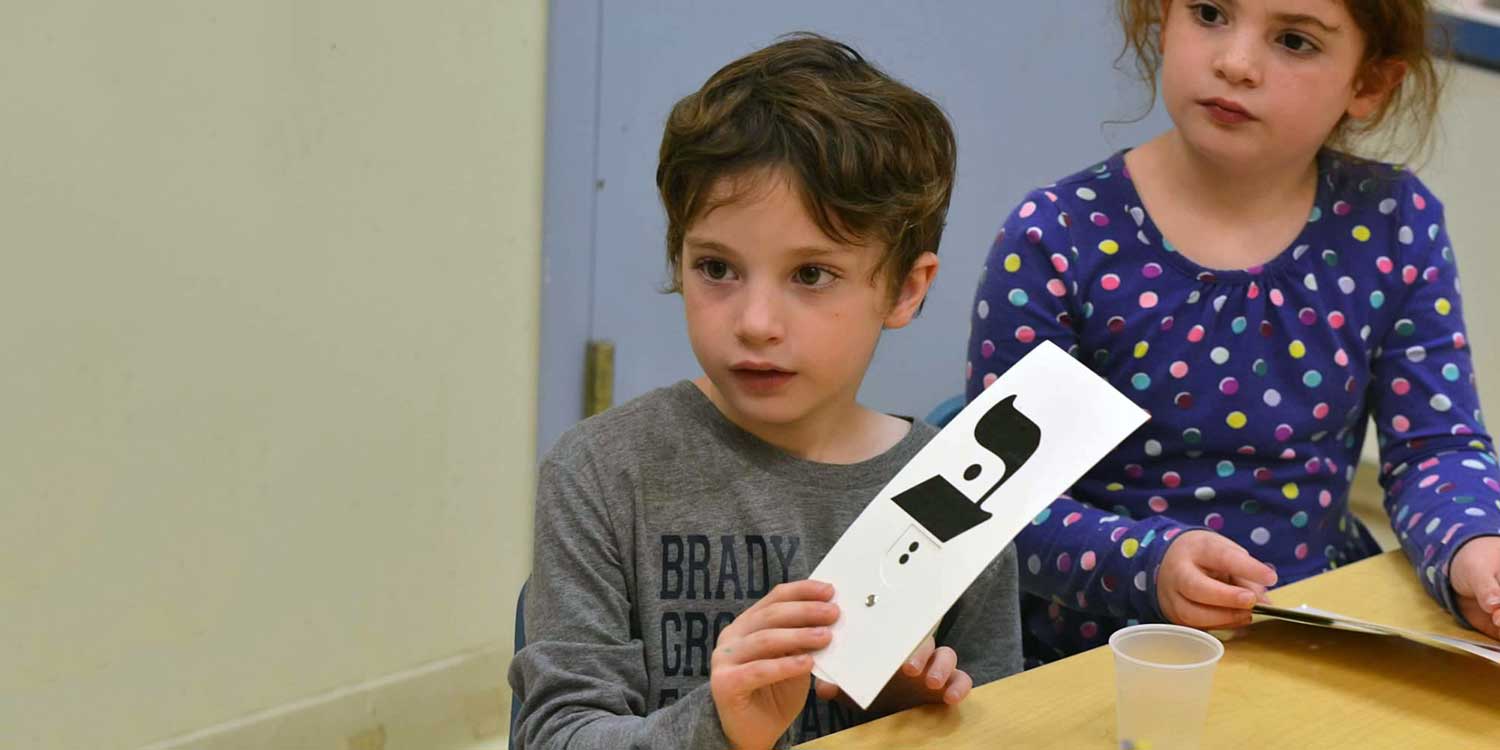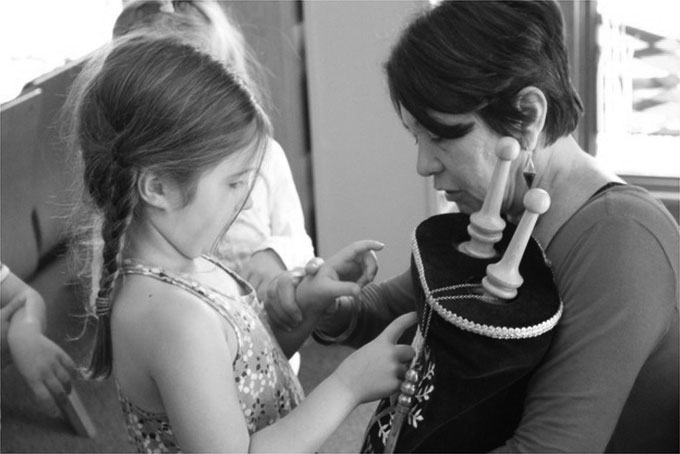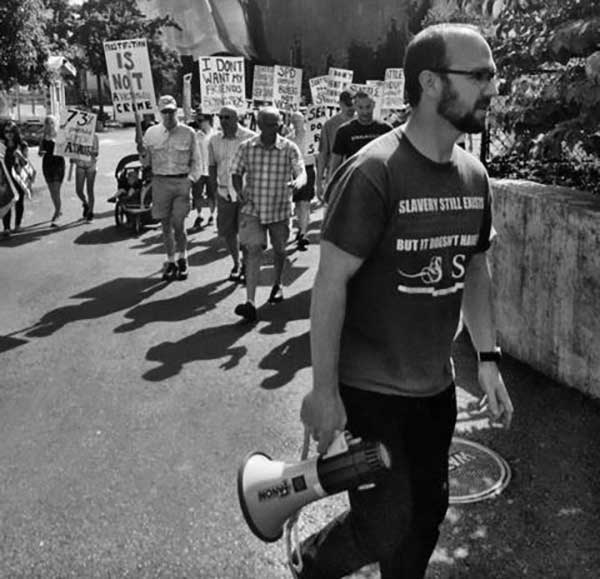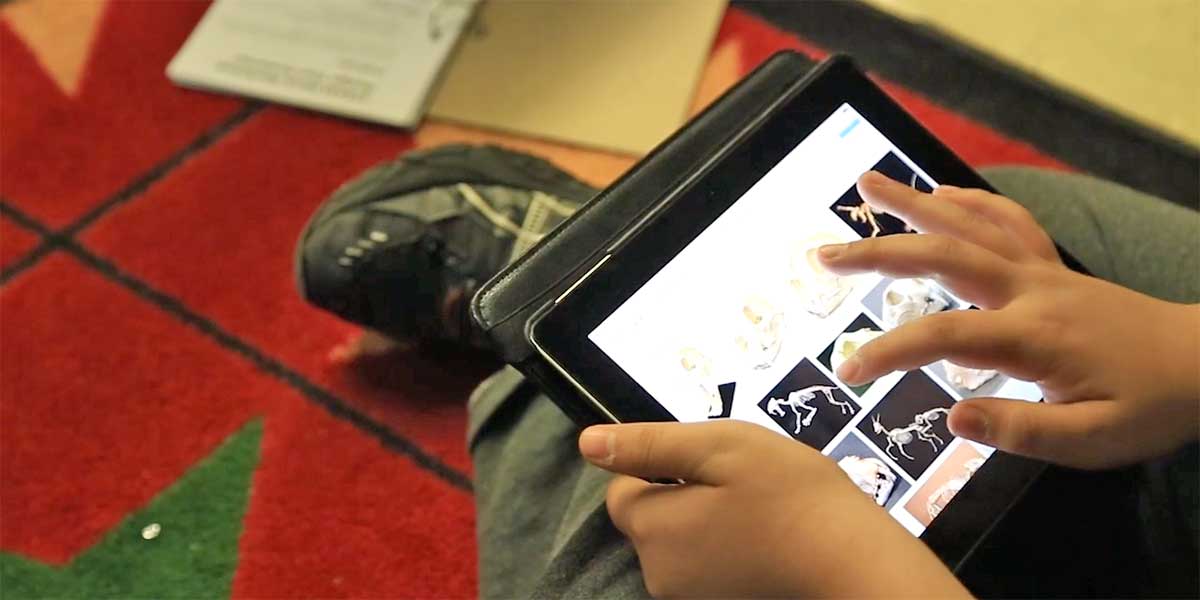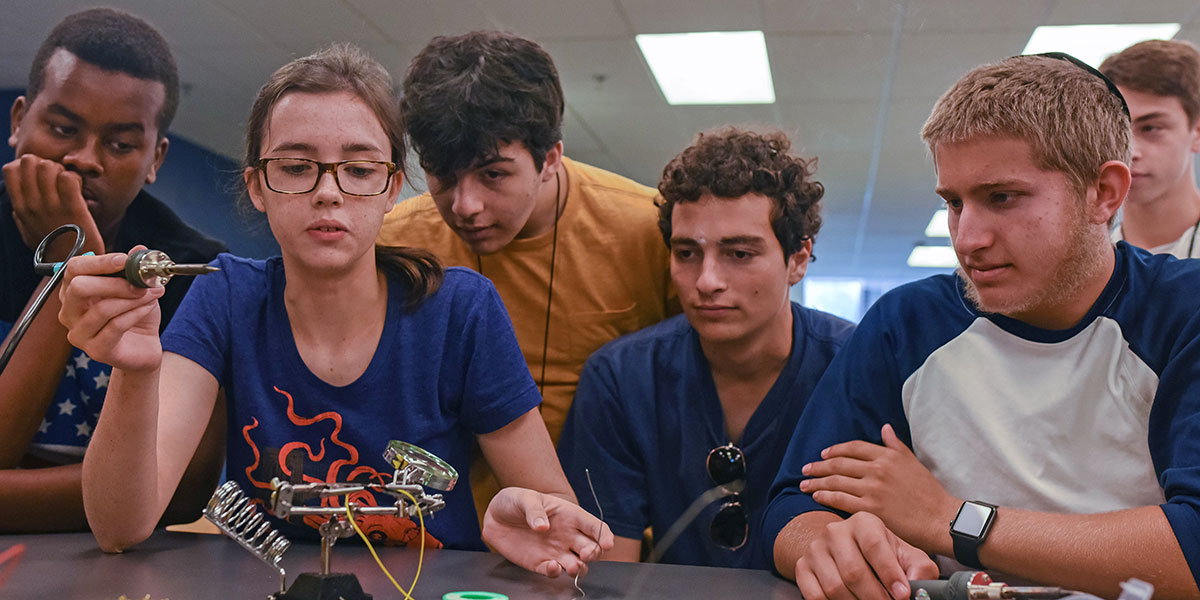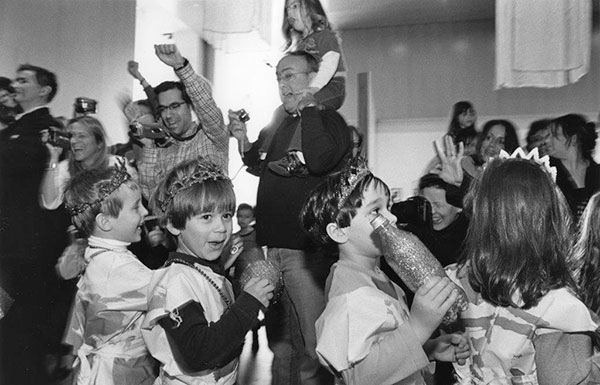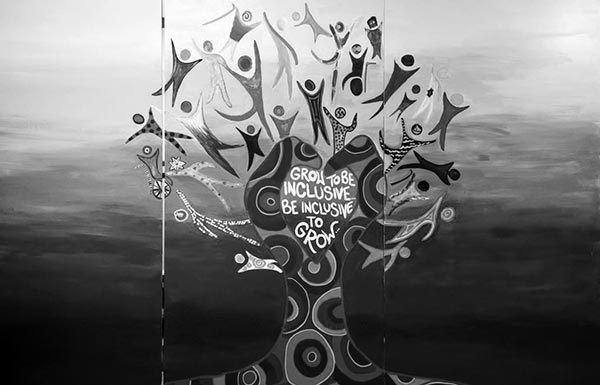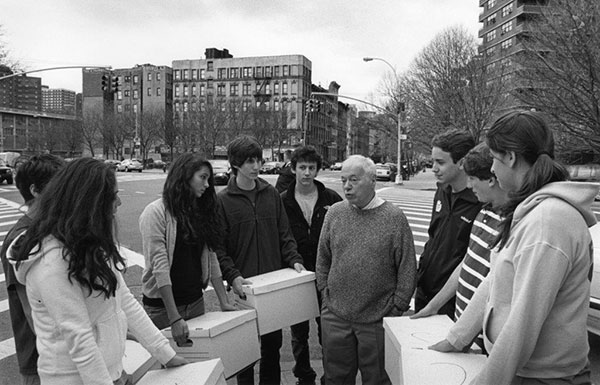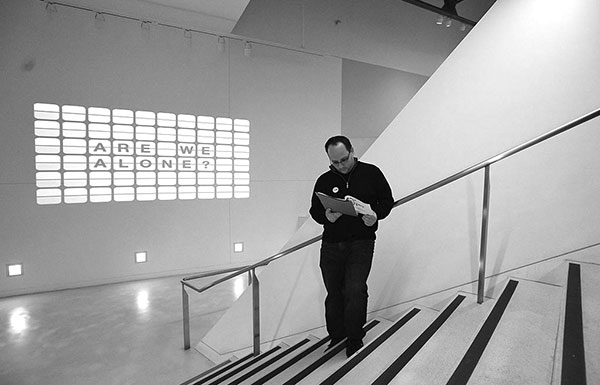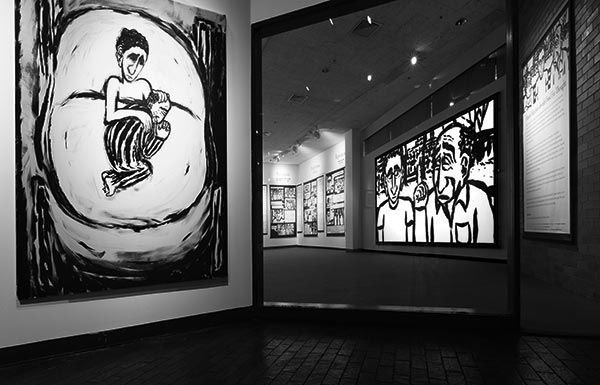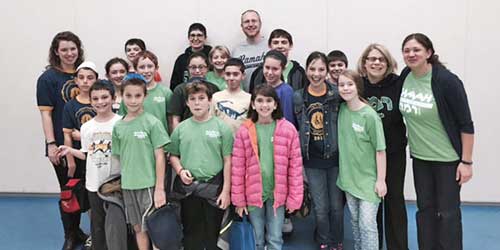
ARTICLE Dream Big, Don’t Settle: The Magic of the Ramah Service Corps
Amy Skopp Cooper knows young adults have magic. “They’re cool. They have charisma,” she gushes. “They’re passionate, and kids respond to them.”
She’s not just talking about any young adults; in this case, Skopp Cooper’s talking about the special group of fellows in the Ramah Service Corps (RSC). “They’re future rabbis, or Jewish educators, or maybe they’re on their way to medical school,” she says. “These are well-rounded young people. They are so grateful for what they’ve gotten from their own Ramah experiences, they want to give back.”
And thanks to the Ramah Service Corps, they can, by working in local conservative synagogues across the country to bring Ramah-style ruach (spirit) and chinuch (education) to communities where future Ramah campers might reside and simultaneously creating a network of young Jewish educators across the country.

Tzadik Katamar Gimel with Andrew Stesis
But getting the RSC off the ground wasn’t easy. “We had many painful realizations as we thought through our initial plan,” Skopp Cooper shares.
Budding visionaries take note: an eight-month-long planning process, which involved meetings with practitioners and camping staff, led Skopp Cooper, Ramah’s National Associate Director and Director of Ramah Day Camp in Nyack, NY and Rabbi Mitchell Cohen, Ramah’s National Director, to the realization that even with a large grant, they really couldn’t afford or sustain the kind of program they dreamed of.
But they didn’t give up. Instead, they kept talking.
“And through talking to our mentors at The Covenant Foundation, we realized what we needed to do,” Skopp Cooper shares. “While initially we envisioned a program modeled after Teach for America, where fellows would work full-time, embedded within communities across the country, we had to modify our dream based on the learning we did—our initial plan just wasn’t possible. So instead, with the funding we received from an Ignition grant, we conceived of and created a program where our young people would work very part time in the various communities, infusing those communities with Ramah-style learning and spirit.”
As any visionary knows, it’s not easy to give up on a dream. But with clear eyes and a revised mission, Skopp Cooper and Cohen applied to the Foundation for Jewish Camp for seed money, and in 2010 they had the funding to launch the first Ramah Service Corps intern cohort, which would ultimately support 25-30 interns in various communities nationwide.
During that first run of the program, Skopp Cooper learned that the magic, charisma and enthusiasm of the post-college Ramah alumni was translating directly into an increase in enrollment in Ramah camps across the board. “Synagogues and schools were asking for more and more time from the fellows,” Skopp Cooper adds. “So we knew our idea was resonating.”
And they learned other things, too. Namely, that they needed to install some form of mentorship into the program. “We were sending 20-year-olds out on their own, into synagogues and communities, and that’s complicated. We needed to have better local mentorship support.” So with that information and with funding from another foundation that would allow for three more years of programming, Skopp Cooper re-imagined the Corps yet again. Fellows now work for five hours a week within their assigned community, with the expectation that they will run various programs and have access to both local and national mentoring time.
Today, five years since the first Ramah Service Corps cohort first went out into the world, there are 30 young adults working part-time in communities across North America, and many aspects of the program Skopp Cooper and her colleagues initially only dreamed of have been put into place. “The fellows meet with local mentors weekly, they check in with national mentors every week or week and a half, they attend staff training sessions and webinars, and there is an existing program bank accessible to all fellows,” Skopp Cooper explains. Fellows are also in direct contact with regional Ramah camp staff, who assist with recruitment efforts on the ground in the communities where the fellows work.
It’s more than Skopp Cooper could have ever imagined. “With our one grant, we thought dayeinu,” she admits. “But what started small—an Ignition grant and an idea—has had a huge impact on our program.” And that impact keeps growing: two years ago, the Davidson Foundation in Detroit contacted Ramah about bringing fellows to work full-time in the metro Detroit area, and all of a sudden, “we were dusting off that original idea of having full-time Ramah alumni working in communities,” she says. Sure enough, in 2013, Skopp Cooper and Cohen’s original brainchild came to fruition when three full-time fellows moved into a shared Ramah bayit in metro Detroit (bringing the total number of Ramah fellows to 33). In its second year, full-time Detroit fellows now work with local synagogues and two area Jewish Day Schools, partner with local Jewish organizations and run programs with adults.
As for next steps, Skopp Cooper says the Ramah Camping Movement is beginning to look into how they could continue to grow their Detroit model in other communities. Without a doubt, it’ll take some magic, but Skopp Cooper now knows it can be done.
“Our mentors at Covenant said, ‘don’t settle,’” she shares. “So we didn’t. They told us, ‘don’t stop dreaming big and thinking big,’” she adds. “And we didn’t.”
By Adina Kay-Gross, for The Covenant Foundation
